How Much Does Wedding Catering Cost in Canada?
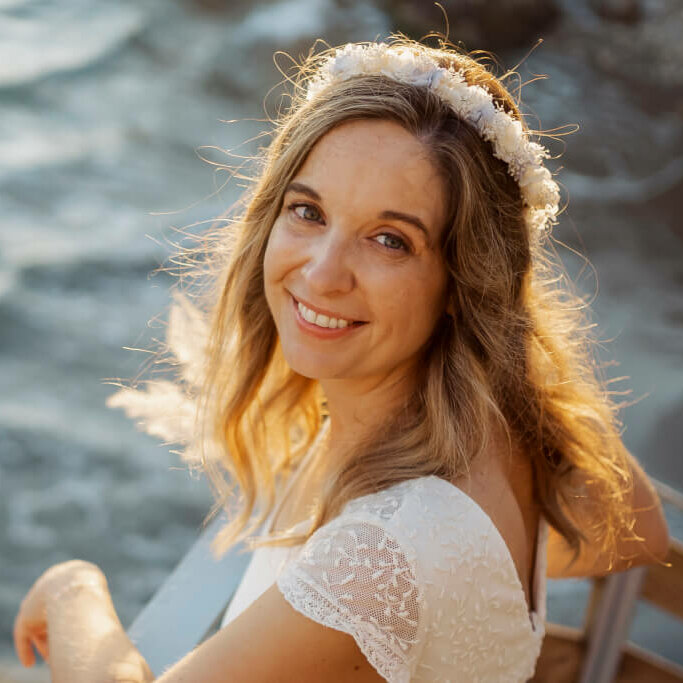

When it comes to hosting a memorable wedding, food and drink are a huge contributing factor. Including canapés and arrival drinks, a three or four-course wedding breakfast and a spread for the evening buffet, your guests will spend a large portion of their time at your wedding enjoying some delicious food and drink.
But how much does wedding catering cost in Canada? So you know exactly how much of your budget you need to dedicate toward keeping your guests fed, watered (or wined!) and – ultimately – happy!
In this post we’re going to take a look at the average cost of catering a wedding and what can affect that cost – including the alcohol.
How does the pricing work?
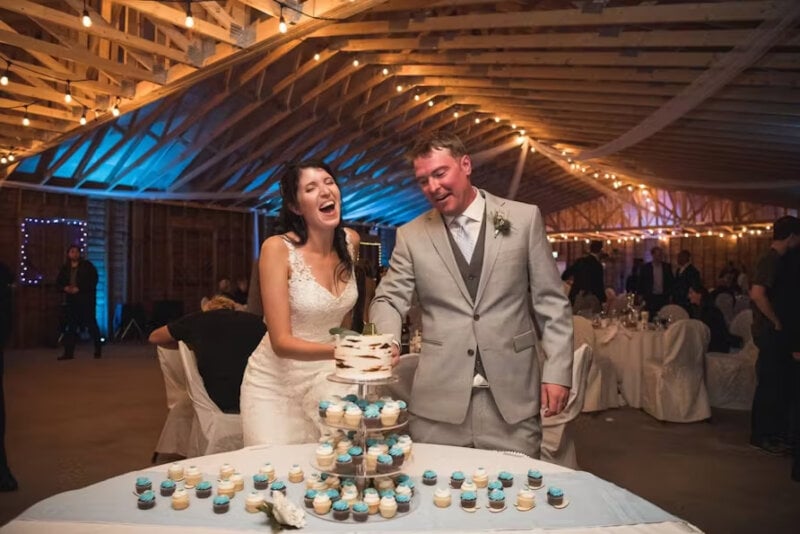
The first thing you need to know is that, depending on the venue, catering can often be done in-house. But, if the venue doesn’t offer catering that suits your taste, you can hire caterers to come to your venue separately. Venues that include catering are usually priced per head, meaning there will be a set price for every guest which will include food (a buffet or sit-down meal), the venue rental and sometimes half a bottle of wine per person for the meal and some bubbly for the toasts.
If a venue is priced at a lump sum, it usually means that catering is not included and what you are paying goes towards securing the venue. For more information, check out our post on the cost of a wedding venue.
What is the average cost of catering a wedding?
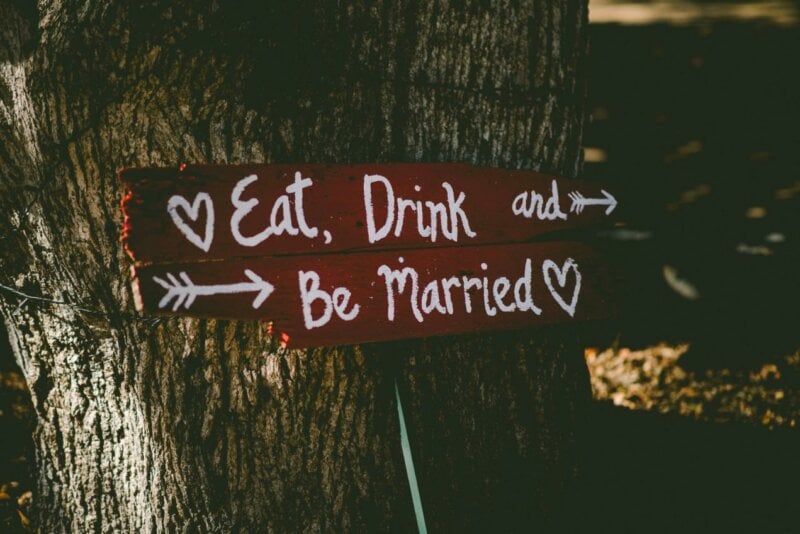
How much your wedding catering costs depends entirely on how many people you’re looking to invite. The more people you invite, the more hungry mouths there will be, and of course the higher the cost will be.
In our ultimate guide to budgeting a wedding, we outlined that Canadian couples spend an average of $7,000 to $8,500 on catering.
Of course, these numbers can vary significantly if your wedding is more intimate or more extravagant. For a wedding with around 40 guests, the average catering cost will be approximately $4,500, while for a 160-guest wedding, you’re looking at around $18,000.
This is based on averages, but depending on your budget, there’s a range of options available:
- Affordable: $35 – $70 per guest
- Moderate: $70 – $105 per guest
- Luxury: $105 – $140 per guest
- Super luxury: $140+ per guest
Is it cheaper per head the more guests there are?
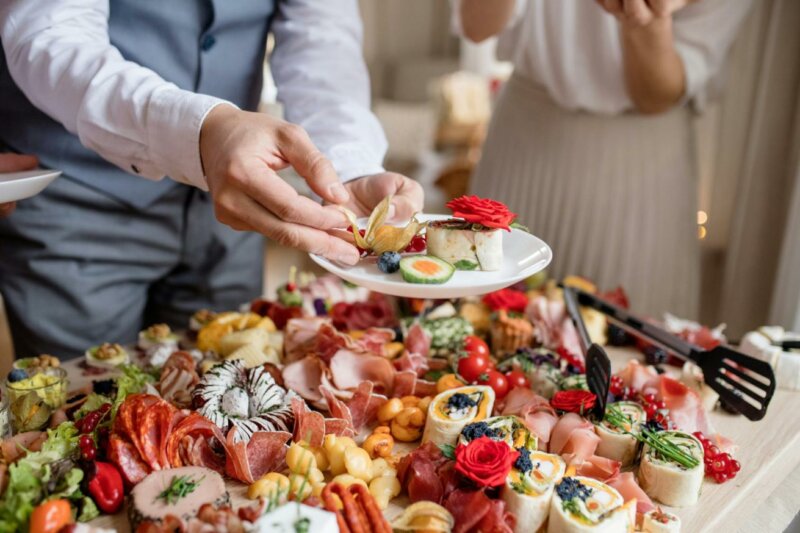
You may expect the price per head to reduce depending on the greater the number of guests there are, but this isn’t always the case when it comes to catering a wedding. It will usually depend on several factors, including the venue, the number of kitchen and wait staff required, and the dining style.
For example, the price per head will be cheaper if you provide buffet-style food or food trucks than it would with a four-course meal, regardless of how many guests are attending.
How much does a wedding breakfast cost?
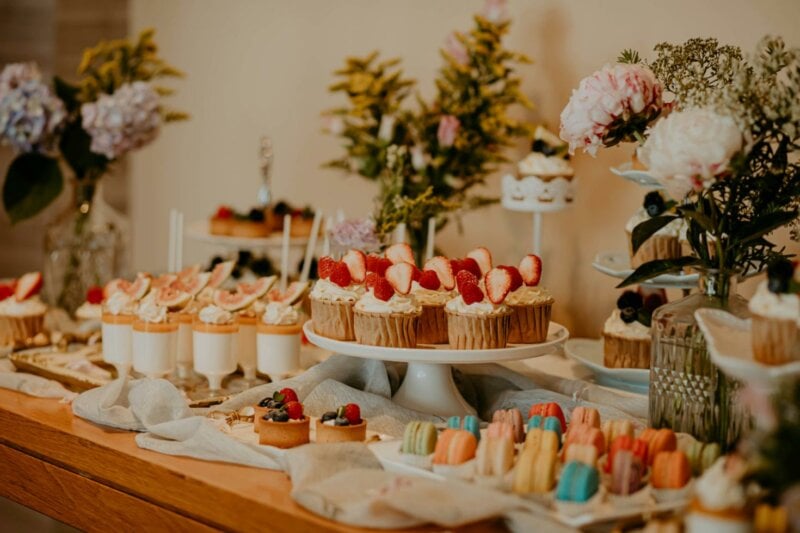
If you choose to include a formal wedding breakfast, it will likely be one of the most expensive parts of your reception. Typically, these multi-course meals are handled with precision, resembling a well-organized restaurant service — hence the higher cost.
The average cost for a wedding breakfast ranges from $50 to $70 per guest, though high-end venues or caterers can charge more than double that amount.
How much does an evening buffet cost?
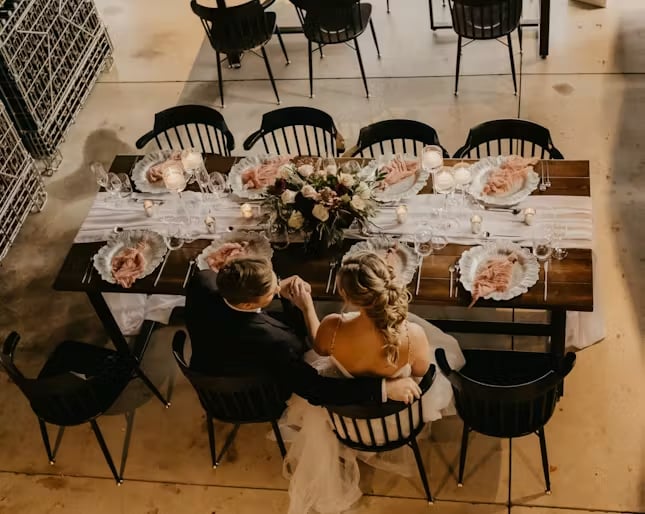
An evening buffet is a more relaxed option, offering a variety of dishes and requiring fewer servers, which makes it more budget-friendly. It’s also a great way to satisfy guests who only attend the evening portion of your celebration.
The average buffet cost typically ranges from $35 to $50 per guest. However, prices can vary depending on the type of food, with simpler dishes like chicken and fries being more affordable than premium options like sushi or fancy canapés.
What else can affect the cost of catering a wedding?
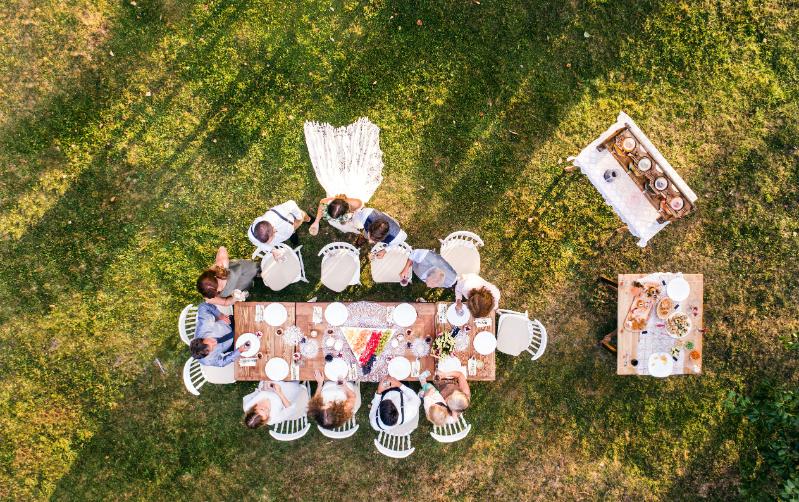
The above costs are all averages, and you’ll make plenty of choices that will make that cost go either down or way (WAY) up. These include:
- Style of service: the cost of a buffet, sit-down meal, or food truck can vary hugely. For example, for a sit-down meal, you would have to factor in the wages and tips of the waiters (it’s recommended to have 1 per 11 guests) and a buffet would have a wider selection of food options.
- Menu choice: The more options you offer your guests outside of the standard meat, fish or vegetarian/vegan, the more you’re likely to pay.
- The venue: Does it have its own catering team? If you’re hiring a catering team separate from the venue, you may also need to factor in the cost of hiring a marquee and portable kitchen. These costs can quickly add up, adding several thousand to the cost of your catering. Some venues have a list of preferred caterers, so make sure you ask your chosen wedding venue if there are limitations.
- The food: Some food is cheaper to make than others. If you’re keen to offer oysters and caviar, don’t be surprised if it’s more expensive than if you were to offer sandwiches and poutine.
- The ingredients: Some caterers may offer premium ingredients, and if imported or organic produce is important to you then expect to pay a little extra.
- The number of courses: Are you happy with a three-course meal, or would you like to offer hors d’oeuvres, a fish course, palate-cleansing sorbets, and mignardise? The more courses there are (and the more complex they are to make) the pricier it will be.
- The date: You can expect to pay higher rates during peak times, such as during the summer and at weekends.
What about the alcohol?
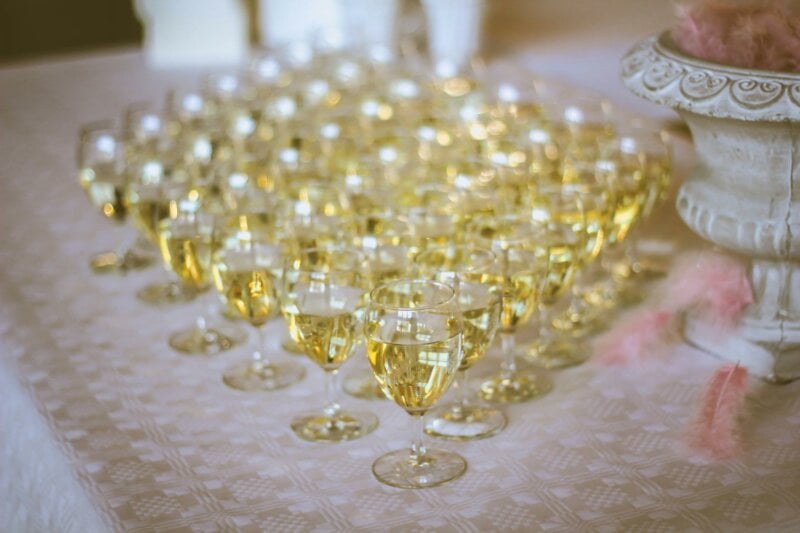
While it’s tempting to offer an open bar, this can quickly become very costly, especially since guests often enjoy several drinks at weddings. Many Canadian couples opt for a more budget-friendly approach: providing a bottle or two of wine per table, plus some sparkling wine for toasts. Guests can then purchase additional drinks from a cash bar.
If you bring your own wine or bubbly, venues may charge a corkage fee, typically ranging from $8 to $15 per bottle.
You’ll also need to consider alcohol licensing for your wedding venue. Most venues will already have a liquor licence, but if you plan to serve alcohol in a location without one (like a private property), you’ll need to apply for a Special Occasion Permit (SOP). These permits vary by province but are commonly issued by provincial liquor boards (e.g., the Liquor Control Board of Ontario).
Make sure to check provincial laws on service and consumption, as rules around hours, quantities, and types of alcohol can vary.
Ready to plan your big day?
Need a hand (or two) with wedding planning? Join Bridebook and get all the tools you need to plan your big day from start to finish. Plan your wedding budget, find your wedding venues and suppliers, organize your guest list and more.
And if you’re looking for ways to save money on your wedding catering, we’ve got all the tips and tricks you need to help you keep costs down.
You Might Also Like…
- The Ultimate Canadian Wedding Budget Breakdown
- How much does a Wedding Venue Cost?
- Top 10 Groom Speech Examples
- Top 10 Bride Speech Examples
- Wedding Traditional Speech Order: Who Says What & When
Happy Planning!

